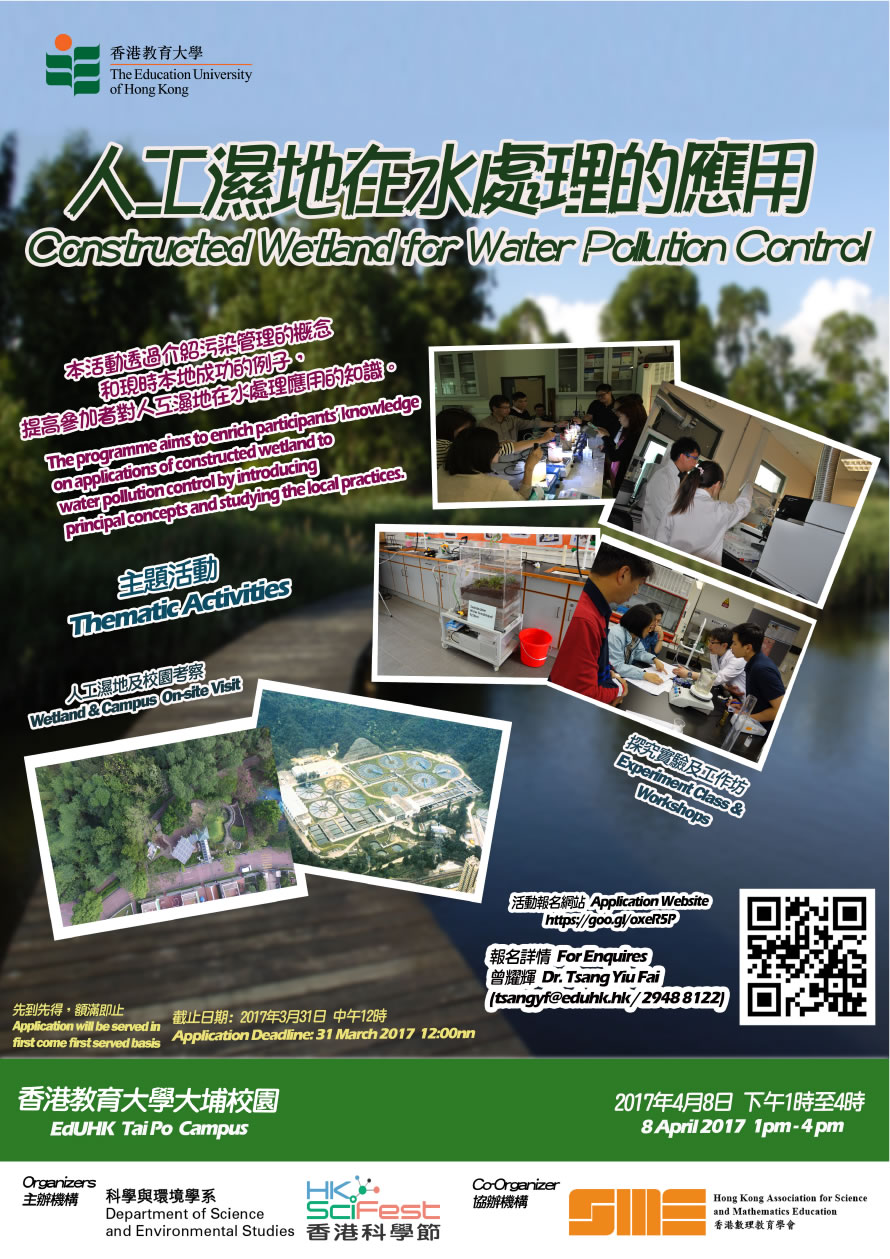

|
|
|
|
|
|
|
|
|
Research/RAE > Research Projects
 |
Dr. LEE Yeung Chung - A Cross-cultural, Cross-age and Cross-gender Study of Hong Kong and UK Secondary Students’ Decision-making about Biological Conservation Issues
Chief Investigator:
Dr. LEE Yeung Chung
Project Year:
2016-2017
Description:
The proposed research explores secondary students’ decision making about socio-scientific issues (SSIs) related to biological conservation, from cross-cultural, cross-age and cross-gender perspectives. Many of these SSIs have profound repercussions on global environmental sustainability that transcend cultural boundaries, and that entail international negotiation. In science education, SSIs can contribute to the development of students’ scientific literacy which embraces the ability to be engaged “intelligently in public discourse and debate about matters of scientific and technological concern” (NRC, 1996, p. 13). Furthermore, making informed decisions about SSIs entails critical reasoning and the exercising of responsible citizenship, which are the thrusts of new interdisciplinary curricula in both Hong Kong (e.g. Liberal Studies), and the UK (e.g., citizenship education). SSIs typically involve disagreements over conflicting science-related claims, evaluation of the trustworthiness of those claims based on evidence, and considerations of the pros and cons of decision alternatives from multiple perspectives. Research on SSIs has been focused on multi-perspective reasoning, the evaluation of evidence, value judgement, and the formulation of the criteria for decision making. The possible role of culture, gender, and age-related developmental factors as mediators of decision making about SSIs has been under-explored, and more so for the impact of intercultural interactions on the quality of decision making despite the fact that appreciating cultural connections within these issues is important in achieving intercultural understanding. Culture, gender and age-related development must be taken into account when developing pedagogical approaches to SSI education at the different stages of schooling. This study adopts a comparative perspective and uses a qualitative approach supplemented with quantitative methods. Four secondary schools, two in Hong Kong and the other two in the UK, will be involved in decision making about sociocultural issues and in cross-cultural exchange to study the impact of culture and cross-cultural exchange on students’ decision making about conservation issues. Students from four classes in each school will be engaged as participants, two from the age range of 12-14, and the other two from 16-18 to explore age-related differences in decision making. Students in each class are presented in turn with two conservation issues – animal culling and shark hunting. Data about how students make decisions about the issues before and after interacting with their peers within and outside their locality will be collected through discussion records, supplemented with focus-group interviews. The data will be analysed to reflect the effects of age, gender and cultural contexts on students’ decision making.




